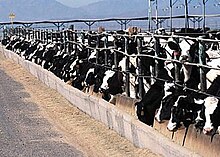More WI wetlands being filled as replacement lags
Builders have been eliminating wetland acreage at the fastest pace in at least a decade under a controversial state law that eased protections for the ecologically important lands...
But three and a half years later, a crucial element in the law’s provisions — replacement wetlands that were supposed to offset those eliminated by development — has been temporarily exhausted...it could be years before larger tracts of replacement wetlands are functioning.
Set aside for a moment that there is little chance a quick excavation-and-reseeding project - - no matter how well-intentioned - - can adequately replace a natural wetland that took centuries to form long before human settlement in Wisconsin - - and absorb the impact of the legislative and special interest agendas that have been intentionally substituted these past few years for a coherent, land-and-water environmental policy that serves the public interest first:
* One of Walker's first administrative actions - - backed up almost immediately by the adoption of a fast-tracked law - - suspended an incomplete DNR review of a proposal by a Walker donor to fill a wetland for a development next to Lambeau Field.
That set the tone: development over conservation, special interests over the public interest, despite the reality that all the water in the state is connected, and that it belongs to everyone, and is supposed to be protected for its common purposes, as the State Constitution says.
* Builders bragged about their behind-the-scenes work with key Walker officials to get the wetlands-filling bill introduced.
* Walker signed the wetlands-filling bill in front of cheering Realtors.
* As I wrote about a year ago to the day about the DNR's wetlands restoration program:
Let's just be assured that this added method of wetlands restoration isn't to enable faster permitting for wetlands-killers, like the proposed iron ore mine in the Bad River watershed near Lake Superior or the planned upscale golf course along alongside and into Kohler Andrae state park south of Sheboygan.
Given new laws and priorities adopted by the Walker administration and implemented by a DNR run with a "chamber-of-commerce" mentality" that disregard science, minimize environmental inspections and enforcement, ease wetland protections, limit citizen involvement along the way and make business development a DNR goal, the agency can't be trusted to launch a plan for wetland restoration without people wanting to know why a wetland - - any wetland - - needs restoration or remediation in the first place.











